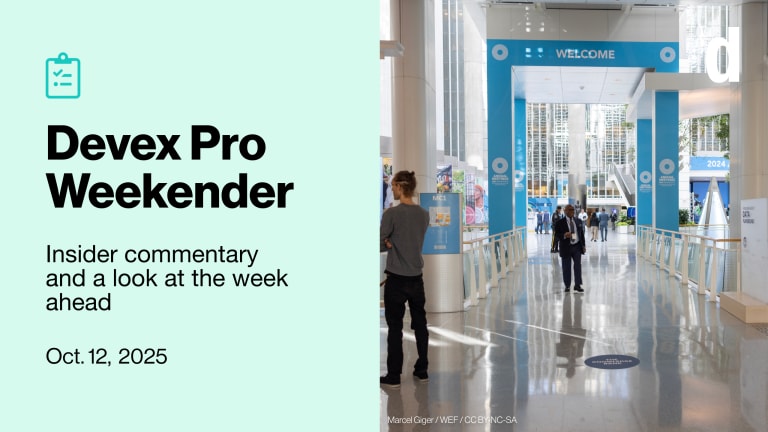
Carrying out development work in Syria has never been easy, but recent violence has made it even more difficult. Local organizations trying to make up for missing government services find themselves the victims of random attacks, and the subject of state surveillance.
Aid groups are “vulnerable and exhausted,” according to a story in The National, an Abu Dhabi-based media company.
Viewed as supporting the opposition, local aid workers struggle to find medical supplies without being labeled enemies of the state. They even struggle to convince needy families it is safe to get assistance as most Syrians are afraid accepting aid will antagonize the security agencies.
In this situation, it’s hard to retain hope that the international community can bring its weight to bear on the Assad regime in time to stop the widespread trauma some aid workers fear will plague Syrians for generations.
The Syrian Action Group did try to come up with the latest peace proposal over the weekend in Geneva. But opposition groups in Syria rejected the six-point peace plan, calling it ambiguous and a mockery.
The plan allows members of the current government to hold office in whatever transitional government takes shape, an unacceptable provision according to opposition members. Its emphasis on mutual consent reveals a complete lack of understanding about realities on the ground, an opposition spokeswoman said.
The current regime appears to reject the plan as roundly as the opposition groups. Assad recently stated: “We will not accept any non-Syrian, non-national model, whether it comes from big countries or friendly countries. No one knows how to solve Syria’s problems as well as we do.”
But any likely scenario has the potential to result in escalated violence and killing, whether by the Assad regime or opportunistic insurgents, according to the Center for Research on Globalization. Humanitarian access and the ability to resume development projects in the near term seem deeply uncertain.
The United Nations-backed group that wrote the communique said time was running out for Syrians to come to political agreement, and called for all parties to implement the plan immediately, “without waiting for the actions of others.”
The group claimed the plan provided clearer and more specific steps for political transition. U.S. Secretary of State Hilary Clinton said the plan provided for the first time a roadmap with concrete actions, and had the support of China and Russia.
In it, members agreed to oppose further militarization of the conflict, encourage the Syrian government and opposition parties to appoint effective, empowered interlocutors, and fully support joint special envoy Kofi Annan. It also demanded immediate cessation of armed violence and cooperation with U.N. monitors.
The document also said Syria must take credible and visible action to implement the plan, for instance by allowing journalists to report from the country, releasing arbitrarily detained people, and supporting humanitarian access.
The plan, however, outlined no repercussions for parties that do not adhere to the guidelines.
The action group stated the international community stood ready to offer significant funding and support, including an on-the-ground presence under a U.N. mandate if requested.
But even an international presence may not be enough to provide the multifaceted development Syria will require.
“Who will pay to rebuild the country and repatriate its people?” asks the author of the Nation article. “Who will restore the historical sites in Busra, Hama, Homs, Latakia … ?”
In the face of an international plan that appears acceptable to no one, it seems only Syrians will pay.
Read more development aid news online, and subscribe to The Development Newswire to receive top international development headlines from the world’s leading donors, news sources and opinion leaders — emailed to you FREE every business day.








